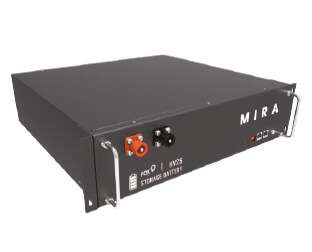Harnessing the power of the sun through solar panels has become an increasingly popular and environmentally friendly way to generate electricity. However, solar panels alone cannot provide a continuous power supply, especially during periods of low sunlight or at night. This is where solar batteries come into play. In this article, we will explore the benefits and advantages of combining solar panels with batteries for a more efficient and reliable solar energy system.
Solar Panels: A Sustainable Source of Electricity
Solar panels, also known as photovoltaic (PV) panels, are a revolutionary technology that converts sunlight directly into usable electricity. Composed of multiple solar cells, these panels operate on the principle of the photovoltaic effect. When sunlight strikes the solar cells, it excites the electrons within the cells, causing them to break free from their atoms and create an electric current. This direct current (DC) is then converted into alternating current (AC) through an inverter, enabling it to power household appliances and be seamlessly integrated into the electrical grid.
The primary advantage of solar panels lies in their ability to harness a clean and sustainable source of electricity. Unlike traditional energy sources such as fossil fuels, solar energy is renewable and virtually inexhaustible. The sun, our nearest star, radiates an abundance of energy that can be captured and converted into electricity. Solar panels facilitate this process by directly converting sunlight into usable power, eliminating the need for combustion or other environmentally harmful processes.
By relying on solar panels to generate electricity, we significantly reduce our dependence on fossil fuels and mitigate the adverse effects associated with their extraction and combustion. Solar energy systems produce no greenhouse gas emissions or air pollutants during operation, making them environmentally friendly and helping combat climate change. Furthermore, solar power offers a sustainable solution to the world’s increasing energy demands, ensuring a greener future for generations to come.
Solar panels have a wide range of applications, from residential rooftops to large-scale solar farms. Their versatility allows individuals, businesses, and communities to adopt renewable energy solutions tailored to their specific needs. Solar energy systems can be installed on rooftops, providing households with a clean and efficient source of electricity. Additionally, solar farms can be established in open areas to generate large amounts of renewable energy for entire communities or even contribute to the national grid.
In addition to their environmental benefits, solar panels offer economic advantages as well. As solar technology advances and becomes more affordable, the cost of installation and maintenance has significantly decreased, making solar energy increasingly accessible to a broader range of consumers. By investing in solar panels, individuals and businesses can potentially reduce their electricity bills, increase their energy independence, and even generate revenue by selling excess electricity back to the grid through net metering programs.
Furthermore, solar panels require minimal maintenance, with no moving parts to wear out, resulting in long-term cost savings. Once installed, they can operate reliably for decades, with many manufacturers providing warranties that guarantee performance for up to 25 years or more. This long lifespan, coupled with the absence of fuel costs and the ability to generate electricity on-site, makes solar panels an economically attractive choice.
The Need for Solar Batteries
While solar panels can generate electricity during daylight hours, they are dependent on sunlight. This means that at night or during cloudy days, solar panels cannot produce electricity. To address this limitation and ensure a continuous power supply, solar batteries are used to store excess energy generated by the solar panels during the day for use when sunlight is not available.
Advantages of Solar Batteries
- Energy Storage: The primary advantage of solar batteries is their ability to store excess energy produced by solar panels. This stored energy can be used during periods of low sunlight or at night when solar panels are not actively generating electricity. Solar batteries provide a reliable and independent source of power, allowing homeowners to reduce their dependence on the electrical grid and have electricity during power outages.
- Increased Self-Consumption: Solar batteries enable homeowners to increase their self-consumption of solar energy. Excess energy generated by solar panels can be stored in the batteries and used when the demand for electricity exceeds the solar panel output. This reduces the need to draw electricity from the grid, resulting in lower utility bills and maximizing the utilization of solar energy.
- Time-of-Use Optimization: Some areas have time-of-use electricity pricing, where electricity rates vary based on the time of day. Solar batteries allow homeowners to store energy when electricity prices are low, typically during off-peak hours, and use that stored energy during peak hours when electricity prices are higher. This can lead to significant cost savings on electricity bills.
- Grid Independence and Backup Power: Solar batteries provide homeowners with a degree of energy independence by allowing them to rely less on the electrical grid. During power outages, solar batteries can provide backup power, ensuring that essential appliances and systems continue to function. This is particularly beneficial in areas prone to blackouts or where grid reliability is a concern.
- Energy Management and Efficiency: Solar batteries enable efficient energy management by optimizing the utilization of solar energy. Homeowners can program the battery system to charge during periods of high solar generation and discharge during times of high electricity demand. This helps balance the overall energy usage, reduce peak loads, and optimize the performance of the solar energy system.
Combining solar panels with batteries offers numerous advantages, including energy storage, increased self-consumption, time-of-use optimization, grid independence, backup power, and efficient energy management. Solar batteries not only enhance the reliability and efficiency of a solar energy system but also provide homeowners with greater control over their energy consumption and reduce reliance on the electrical grid. As battery technology continues to advance and costs decline, the integration of solar panels with batteries becomes an increasingly viable and attractive option for residential and commercial solar installations.

As the editor of the blog, She curate insightful content that sparks curiosity and fosters learning. With a passion for storytelling and a keen eye for detail, she strive to bring diverse perspectives and engaging narratives to readers, ensuring every piece informs, inspires, and enriches.










